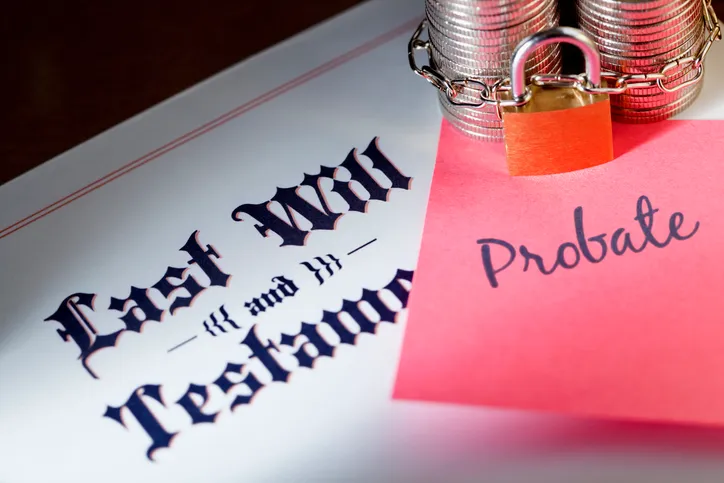When a loved one passes away in Illinois, understanding probate costs becomes an important part of settling their estate. Probate expenses in Illinois typically range from 4% to 8% of the estate’s total value, though costs can vary significantly based on several factors. For Illinois residents concerned about these costs, several strategies exist to minimize probate expenses, including creating living trusts, designating beneficiaries on financial accounts, and utilizing small estate affidavits for estates valued under $100,000. Understanding how much probate costs in Illinois can help families better prepare for this necessary legal process.
If you need help with your own financial planning, consider working with a financial advisor.
How Probate Works in Illinois
Probate in Illinois is the legal process through which a deceased person’s estate is administered and distributed. This process begins by filing a petition with the probate court in the county where the decedent lived. If the decedent left a will, the court verifies its validity and an executor named in the will oversees the estate.
If there is no will, the court appoints an administrator. The executor or administrator is responsible for collecting the deceased’s assets, paying any debts and taxes, and distributing the remaining assets to beneficiaries according to the will or state law if there is no will.
One crucial aspect of probate in Illinois is the role of the executor or administrator. This person must make an inventory of the deceased’s assets, which can include real estate, bank accounts and personal property. They must also notify creditors and pay off any outstanding debts. If the estate’s value exceeds $100,000 or includes real estate, probate is generally required, regardless of the presence of a will. The entire process is supervised by the court, ensuring that the estate is managed according to Illinois law and that beneficiaries receive their rightful inheritance.
Fixed Costs of Probate in Illinois
Probate in Illinois involves several fixed costs that are mandatory regardless of the estate’s size or complexity. One of the primary fixed costs is the court filing fee, which typically ranges from $250 to $400, depending on the county. This fee is necessary to initiate the probate process and cannot be waived. Additionally, there may be fees for publishing notices in local newspapers to inform creditors and potential heirs about the probate proceedings, which can cost between $100 and $300.
Another significant fixed cost in the Illinois probate process is the bond fee. If the will does not waive the requirement, the executor must obtain a probate bond, which acts as an insurance policy to protect the estate from any potential mismanagement. The cost of this bond is generally a small percentage of the estate’s total value and is determined by the estate’s size and the executor’s creditworthiness.
Certified copies of legal documents are another unavoidable expense. Executors must obtain certified copies of the letters of office, which authorize them to act on behalf of the estate. Each certified copy typically costs around $2 to $5. Additionally, the estate may incur appraisal fees for valuing real estate or personal property. Although these fees can vary, they are an essential part of accurately determining the estate’s value for distribution and tax purposes.
Additional Probate Costs in Illinois

Beyond the fixed costs of probate in Illinois, several variable expenses can significantly impact the total cost of the probate process. One of the most substantial variable costs is attorney fees. Attorneys typically either charge an hourly fee or a percentage of the estate value. The longer the probate process goes on, the more you could end up paying if your attorney charges by the hour.
Executor fees are another variable cost in Illinois probate. Executors are entitled to reasonable compensation for their time and effort in managing the estate, which may be outlined in the will or determined by the court if unspecified.
Other potential costs include fees for professional services such as appraisers, accountants and financial advisors. Appraisers are often needed to assess the value of real estate, personal property and other significant assets.
How to Avoid Probate in Illinois
For many Illinois residents, finding ways to avoid probate becomes a priority in their estate planning. There are several strategies to help you bypass the probate process. Here are three common ones to consider:
- Establish a living trust: Creating a living trust is one of the most effective ways to avoid probate. By transferring ownership of your assets to a trust, you can maintain control during your lifetime and designate beneficiaries to receive the assets upon your death. Since the trust owns the assets, they are not subject to probate, allowing for a direct and private transfer to your heirs.
- Joint ownership with right of survivorship: Holding property jointly with rights of survivorship ensures that upon your death, the property automatically passes to the surviving owner without going through probate. This is commonly used for real estate, bank accounts and other valuable assets.
- Transfer-on-death: Adding payable-on-death (POD) or transfer-on-death (TOD) designations to your bank accounts, securities and other financial assets is another simple way to avoid probate. These designations allow you to name beneficiaries who will directly receive the assets upon your death, bypassing the probate process entirely.
- Payable-on-death designations: Illinois banks and financial institutions allow account holders to designate payable-on-death (POD) beneficiaries. Similar to TODIs but for financial accounts, these designations ensure funds transfer directly to named beneficiaries upon death. Setting up POD designations is typically as simple as completing a form with your bank, making it one of the easiest probate-avoidance tools available.
- Small estate affidavits: For smaller estates, Illinois offers a simplified process. If the total estate value is under $100,000 and doesn’t include real estate, heirs may use a small estate affidavit instead of formal probate. This sworn statement allows for the collection and distribution of assets without court proceedings, providing a streamlined alternative when full probate avoidance planning wasn’t completed.
Consulting with a financial advisor or estate planning attorney can provide personalized guidance to ensure that your estate plan is comprehensive and effective.
Bottom Line

Court fees, attorney fees and executor expenses can add up during probate, so being aware of these costs will allow you to prepare adequately. Moreover, considering probate avoidance strategies like establishing a living trust or designating beneficiaries can help minimize these expenses and streamline the transfer of assets to your heirs.
Tips for Estate Planning
- A financial advisor can help you create an estate plan to help you avoid probate and protect assets for beneficiaries. Finding a financial advisor doesn’t have to be hard. SmartAsset’s free tool matches you with vetted financial advisors who serve your area, and you can have a free introductory call with your advisor matches to decide which one you feel is right for you. If you’re ready to find an advisor who can help you achieve your financial goals, get started now.
- Before starting your estate plan on your own, consider the potential dangers of DIY estate planning.
Photo credit: ©iStock.com/William_Potter, ©iStock.com/stocknshares, ©iStock.com/shapecharge
